Best low volume cymbals 2025: Top choices for quieter drum practice
Keep the neighbours happy with our favourite low volume cymbal sets, plus other low-decibel alternatives
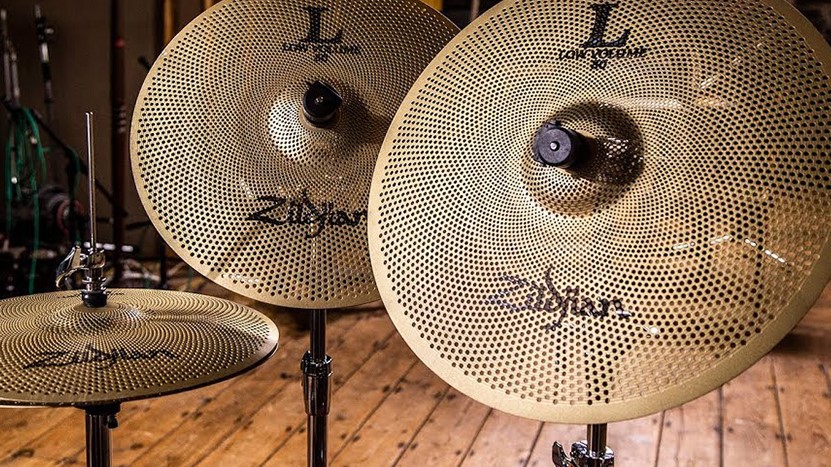
When it comes to cymbals, nobody ever thinks about going for the quieter option. Nine times out of ten, you’re battling with a guitarist that won’t turn down or a diva-ish singer that won’t shut up. But what about when you’re trying to practice? In this guide we’ve got five low volume cymbal options for when you want to quieten down, as well as some alternative cymbal dampening gadgets, just in case you don’t want to shell out on practice-specific pies.
Low volume cymbals are often misunderstood. They’re a fairly new idea, but their practicality has quickly made them a desirable addition to any drummer’s arsenal. Granted, they might not be great for live performance, but low volume cymbals have many advantages over their full-frequency counterparts.
First of all, a set of low volume cymbals is obviously kinder on your ears. The removal of high frequencies thanks to thousands of tiny holes drilled into the surface of the cymbal will alleviate some of the abuse your eardrums take when you get behind the kit. Secondly, you’ll be able to play and practice more frequently, which is vital in order to improve your drumming. Most low volume cymbals tend to be on the smaller side too, which can help with your playing accuracy, and means they’ll take up less space.
Finally, although low volume cymbals are thinner than full-volume options, they offer a similar stick feel, meaning the techniques you work on at home should translate well to your regular cymbals.
If you’d like some more in-depth guidance on low volume cymbals, click the ‘buying advice’ button above. If you’d like to get straight to our product choices, then keep scrolling.
- Still too loud? Take a look at the best electronic drum sets
- Just starting out? Here are the best beginner electronic drum sets
- Hate your neighbours? Check out the best beginner drum sets
Low volume cymbals: MusicRadar's choice
The Zildjian L80 low volume cymbals are some of the best on the market right now. They still retain the feel of a Zildjian cymbal, but a volume reduction of up to 80% makes them a little more sensible for at-home use. You’d think that drilling so many holes in a cymbal would destroy the sound, and while they do sound different, they still deliver musicality.
If you’d rather spend your money on nice loud things, but need a set of practice cymbals to see you through, the WHD low volume cymbals are pretty unbeatable. WHD is Gear4Music’s own-brand range of drum products, and for less than $/£100 you can get your hands on a full 3-piece set, including hi-hats, crash and a ride. They might not sound amazing, but they’re a definite step up from rubber pads, and for such a low price, they’re definitely worth a look.
It’s worth noting that certain retailers sell both the Zildjian and WHD options in packs that include low volume drum heads, so you can practically silence your whole kit in one easy purchase.
Low volume cymbals: Product guide
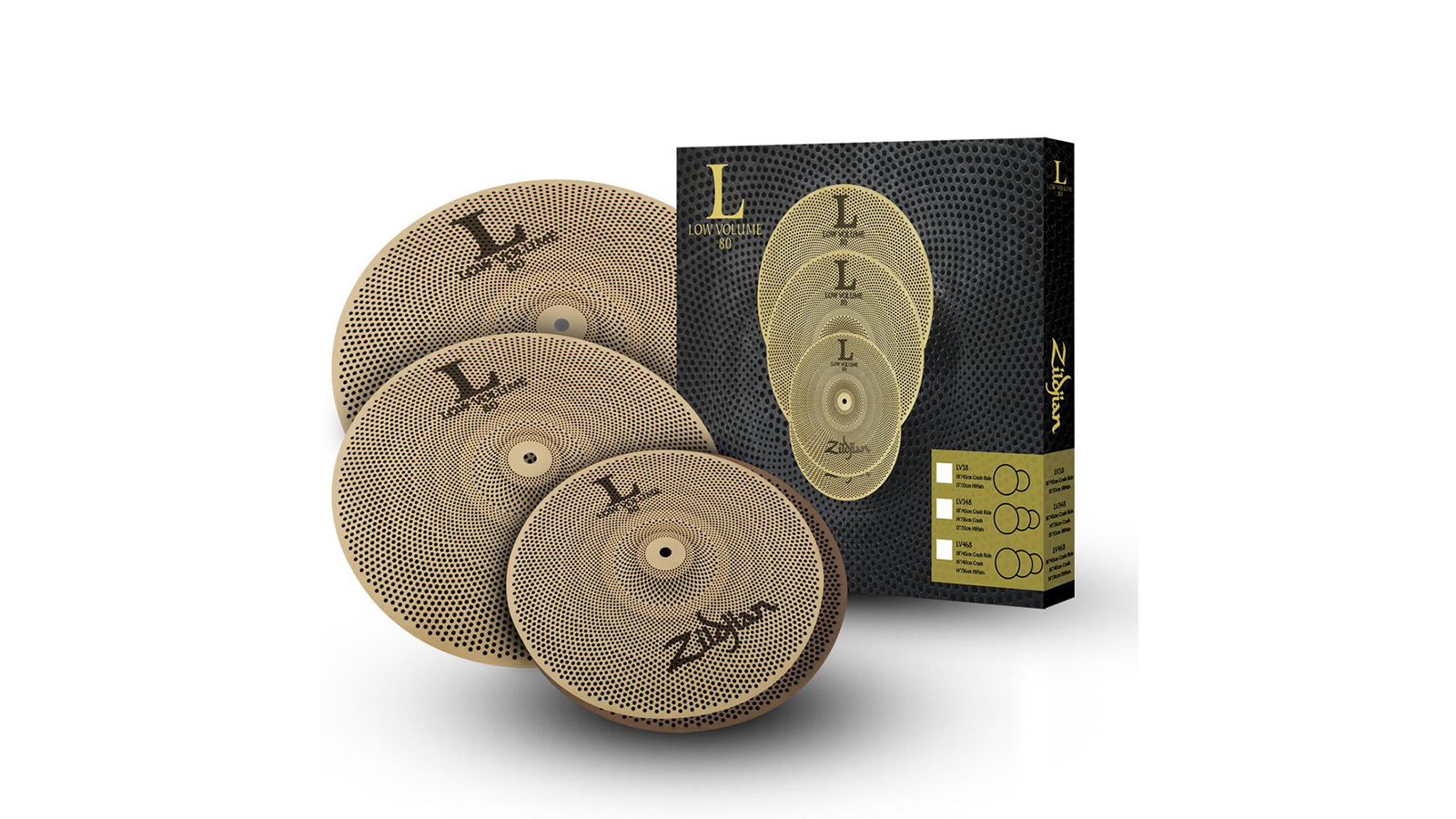
1. Zildjian L80 low volume cymbals
Our expert review:
Specifications
Reasons to buy
Reasons to avoid
Zildjian’s L80’s are perfect for low noise-level drumming applications - especially practice and tuition. Each cymbal features thousands of small perforations which bring the volume down by up to 80 percent - hence the name. They still feel, sound and look like cymbals, so you won’t need to worry about getting used to them.
The L80’s are available individually or as box sets, which include a pair of hi-hats, a crash and a ride. Zildjian have more recently introduced a 10” splash and 18” china to the L80 range, so you can expand your practice setup even further.
Read the full Zildjian L80 review
- Hear yourself loud and clear: The best headphones for drummers
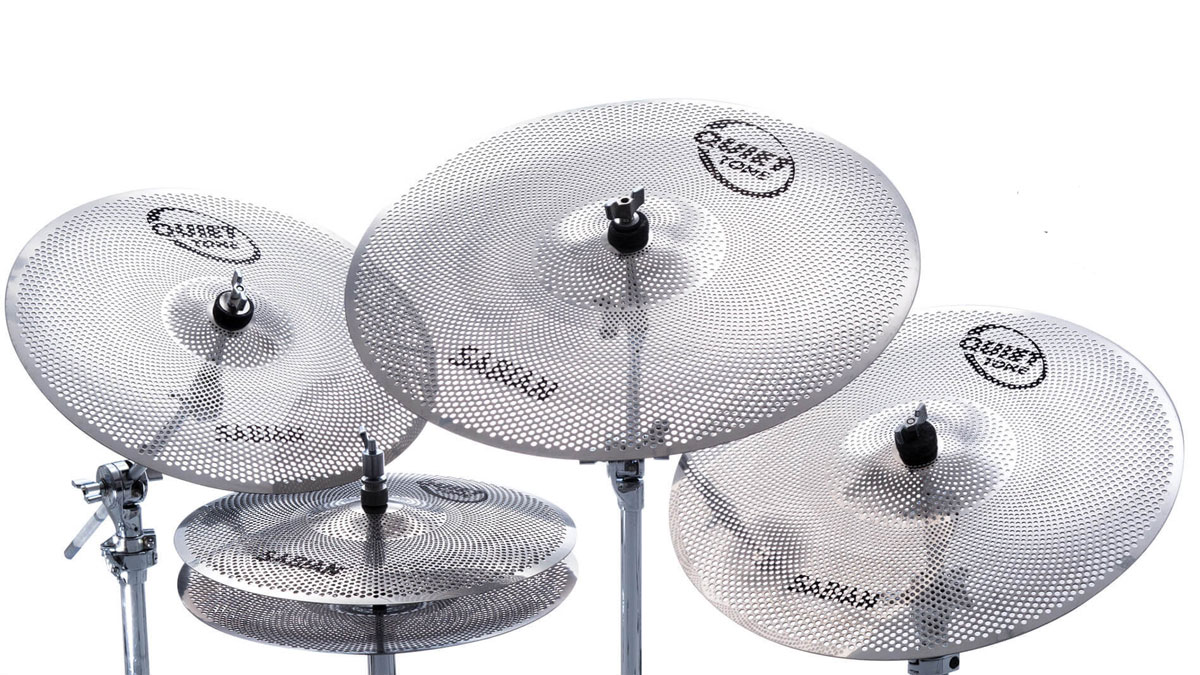
2. Sabian Quiet Tone practice cymbals
Our expert review:
Specifications
Reasons to buy
Reasons to avoid
Much like the L80’s, the Sabian Quiet Tone practice cymbals prioritise feel and response over anything else. Making sure your practice setup feels as close as possible to your gig setup is vital when it comes to efficient learning.
Made from a super tough, durable alloy, you can really lay into these cymbals and not have to worry about breaking them. The ride especially retains its tone nicely, with a surprising amount of note definition for such a light cymbal. The Quiet Tone range has a nice level of presence without being anywhere close to loud, making these a good option for any volume-conscious drummer.
Read the full Sabian Quiet Tone review
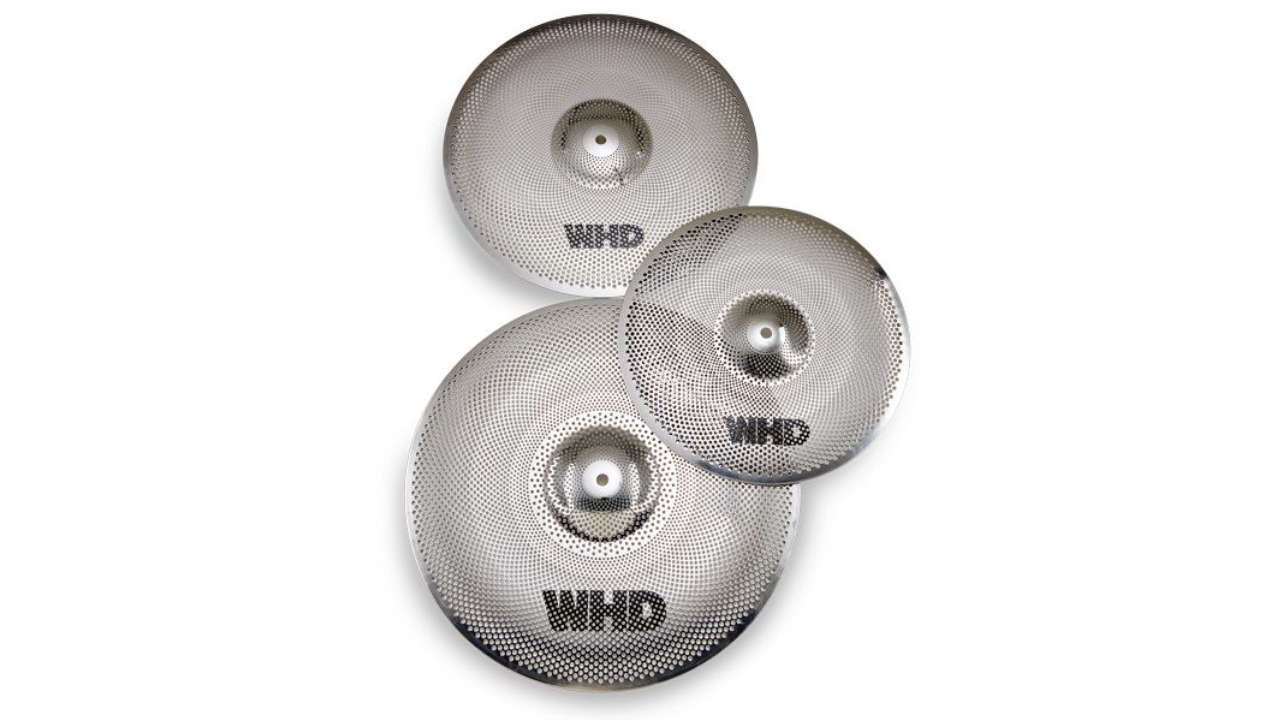
3. WHD Quiet Practice cymbals
Our expert review:
Specifications
Reasons to buy
Reasons to avoid
The WHD low volume cymbals have been designed to allow you to practice at any time of the day or night. Much like the other low volume cymbals in this guide, they feature hundreds of tiny holes to help kill resonance and volume.
The feel is still authentic to that of a standard cymbal, and the volume is cut by - you guessed it - up to 80%. The alloy is noticeably cheaper, which comes across in the tone of the cymbal, but for under £100 we can’t complain too much.
Read the full WHD Low Volume cymbal review
- Sound better than ever with the best drum sets
- Hit things with wood: the best drumsticks
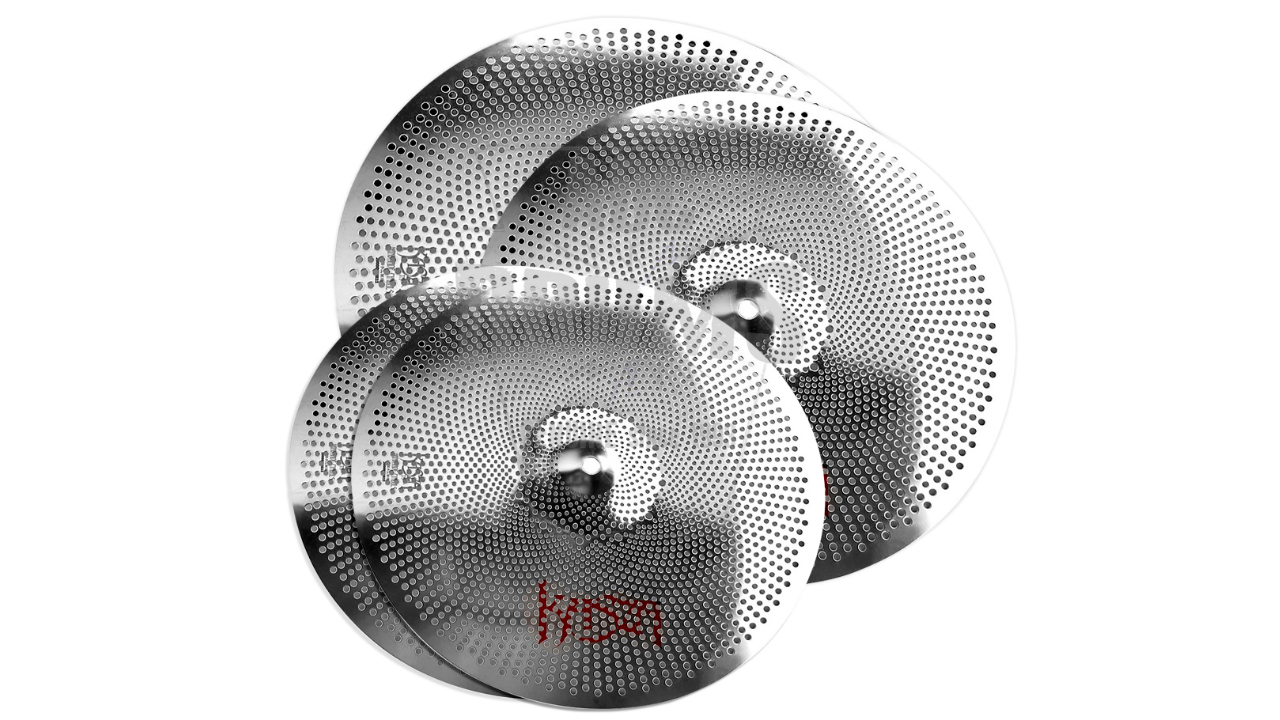
4. Kasza ‘Quiet On The Set’ low volume cymbals
Our expert review:
Specifications
Reasons to buy
Reasons to avoid
Kasza are something of an outlier in the cymbal world. Regardless of the brand name though, the ‘Quiet On The Set’ low volume cymbals offer a full sized, nearly-silent option for those that need to keep practice on the down-low.
Unlike other brands, a 4-piece set is standard, and the included cymbal bag means you can easily cart these to jam sessions or band practice. Price-wise, these cymbals are up there with the big names, and although the sound quality is comparable, you might prefer to buy into the reputation and legacy of other brands. That being said, if you want a full set of low volume cymbals, these will absolutely do the trick.
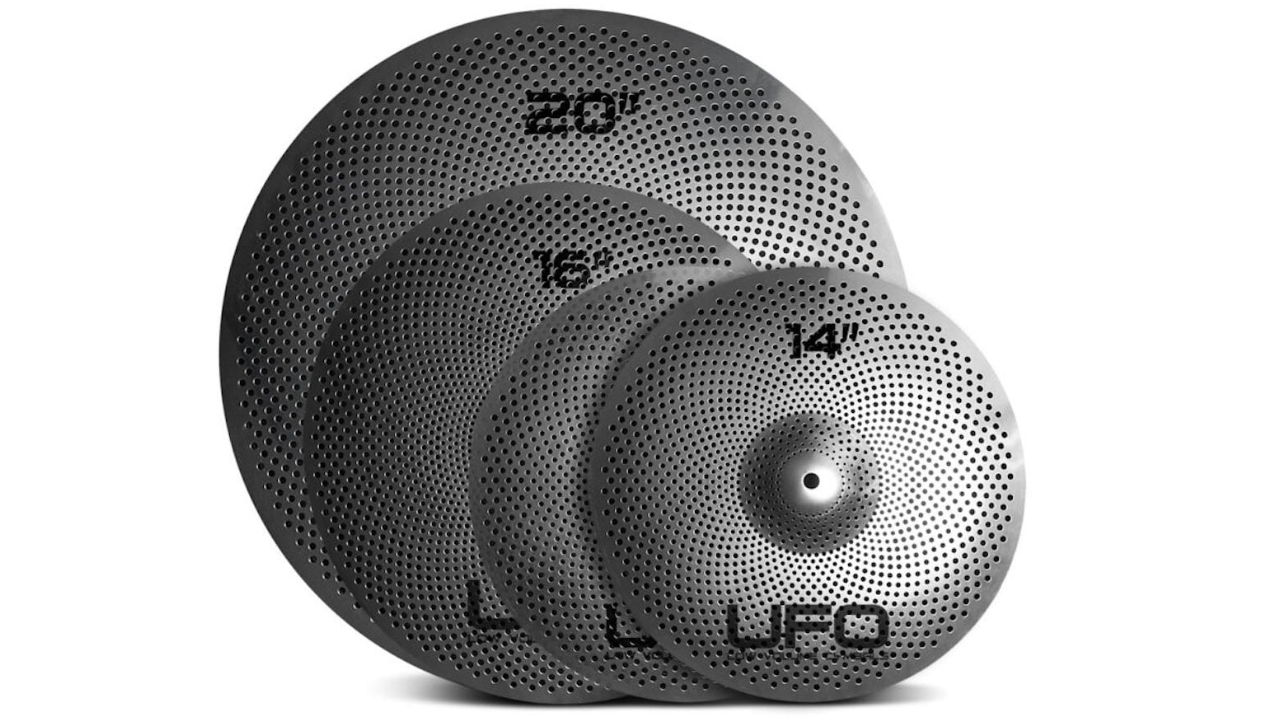
5. UFO Low Volume cymbals
Our expert review:
Specifications
Reasons to buy
Reasons to avoid
UFO is a company dedicated to low volume practice-friendly cymbals. Much like the Kasza’s, they are full size cymbals, so you won’t need to change your playing style to suit. The UFOs are developed specifically to behave like traditional cymbals, making the switch from your regular setup as easy as possible.
The UFOs are made from a durable zinc alloy, so although they’re thin, lightweight cymbals you can still lay into them as you would during a gig. They are on the cheaper end of our price range, but they sound surprisingly musical with a fairly sweet tone. They aren’t quite on the same level as the L80s, but they don’t cost nearly as much, either. An all round solid option, if you’re not fussed about having a big name on your cymbals.
Low volume cymbals: Buying advice
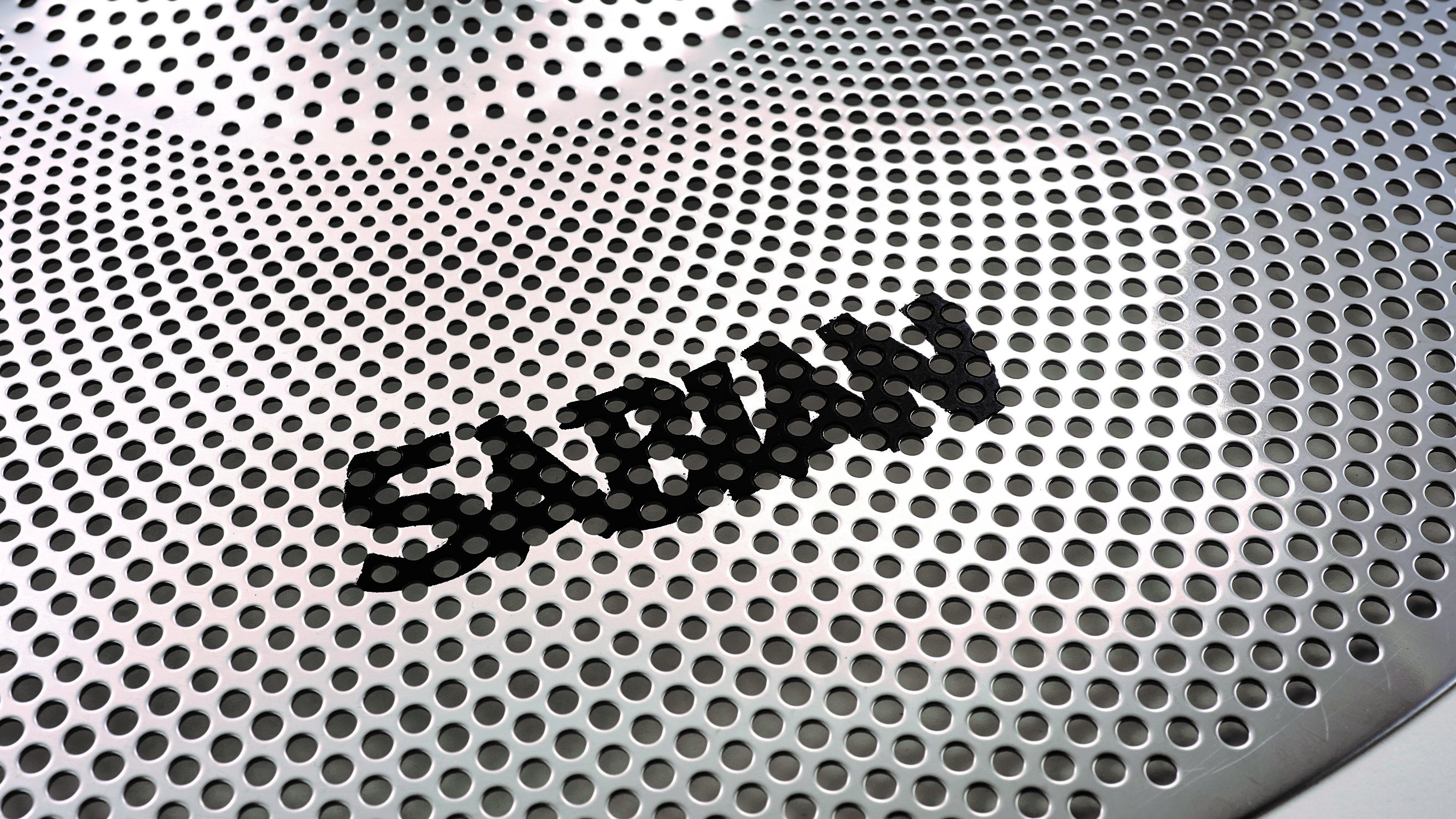
There are a few different things you should consider when buying a set of low volume cymbals. Not only will they be quieter than a regular set of cymbals, but they will sound, feel and look different too.
Low volume cymbals are usually made from Brass, Bronze or Nickel alloys, and are thinner and lighter than most standard cymbals. The reduced weight, along with the thousands of tiny perforations on the surface, allows for certain frequencies to be removed from the cymbal and for the volume to be reduced.
Cymbal size comes into play when we look at controlling volume. Smaller, thinner cymbals are quieter than larger, heavier ones as vibrations can move through the cymbal faster and dissipate quicker. Thinner cymbals generally sound less bright than heavier cymbals, and it’s those high-end ‘bright’ frequencies that you want to try and get rid of when lowering the volume of your setup.
Will they feel different to normal cymbals?
MusicRadar's got your back
The feel of a low volume cymbal is largely similar to that of any thinner cymbal. There’s not a huge amount of resistance on the stick due to the cymbal being thin and light, so when you’re laying into the ride especially, you’ll lose some of that bright ‘pingy’ stick definition. This is down to the fact that thinner cymbals tend to ‘wash out’ quicker, as the vibrations are moving quickly and easily throughout the whole cymbal. It is something you’ll have to get used to, if low volume cymbals are what you’re after.
Low volume cymbals: The alternatives
If low volume cymbals don’t sound like your thing, then there are some other alternatives on the market for you. Keep in mind that these products will help you bring the volume down a bit, but your setup won’t be as quiet as it would be with a set of dedicated low volume cymbals.
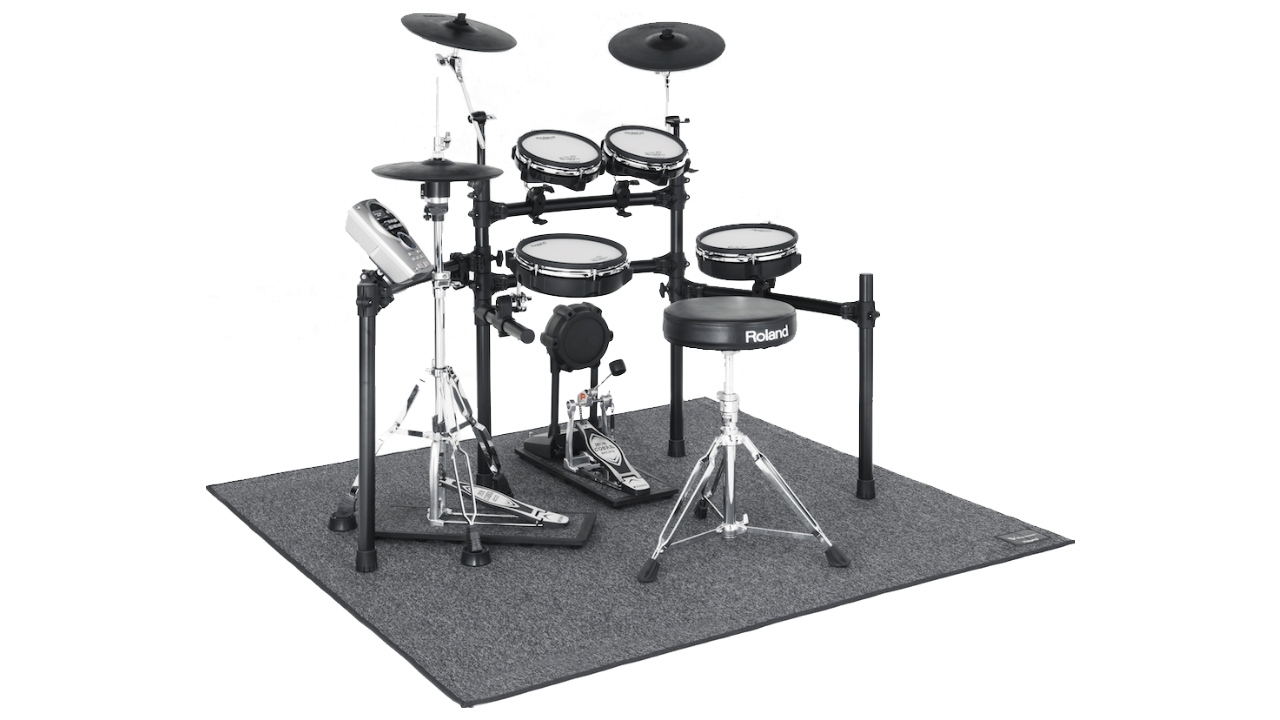
Meinl’s Cymbal Tuners and the Cymbomute silencers will bring the volume of your current cymbals down by interfering with the vibration of your cymbal and therefore choking it up. This means that if you prefer the feel of your current set, or just don’t want to break the bank, then you’ll still be able to practice at slightly more sensible volume levels.
‘Frequency reduced’ cymbals are another option, like the Sabian FRX range below. Much like dedicated low volume cymbals, the holes in these cymbals interrupt the vibration in the metal and therefore reduce the high frequencies produced. They’re still pretty loud though, so they might not be the answer for everyone.
Meinl also offers their Extra Dry cymbals range, which is still firmly under the ‘full volume’ category. However, their light weight and thin construction mean they are quite a bit quieter than other cymbals.
The ‘dryness’ of these cymbals means that they produce fewer high frequencies than you’d find in other cymbals with a more traditional or brilliant finish (the more shiny ones). They’d be great if you want something that sounds more subtle than a regular cymbal set, but they’re not low volume cymbals by any means.
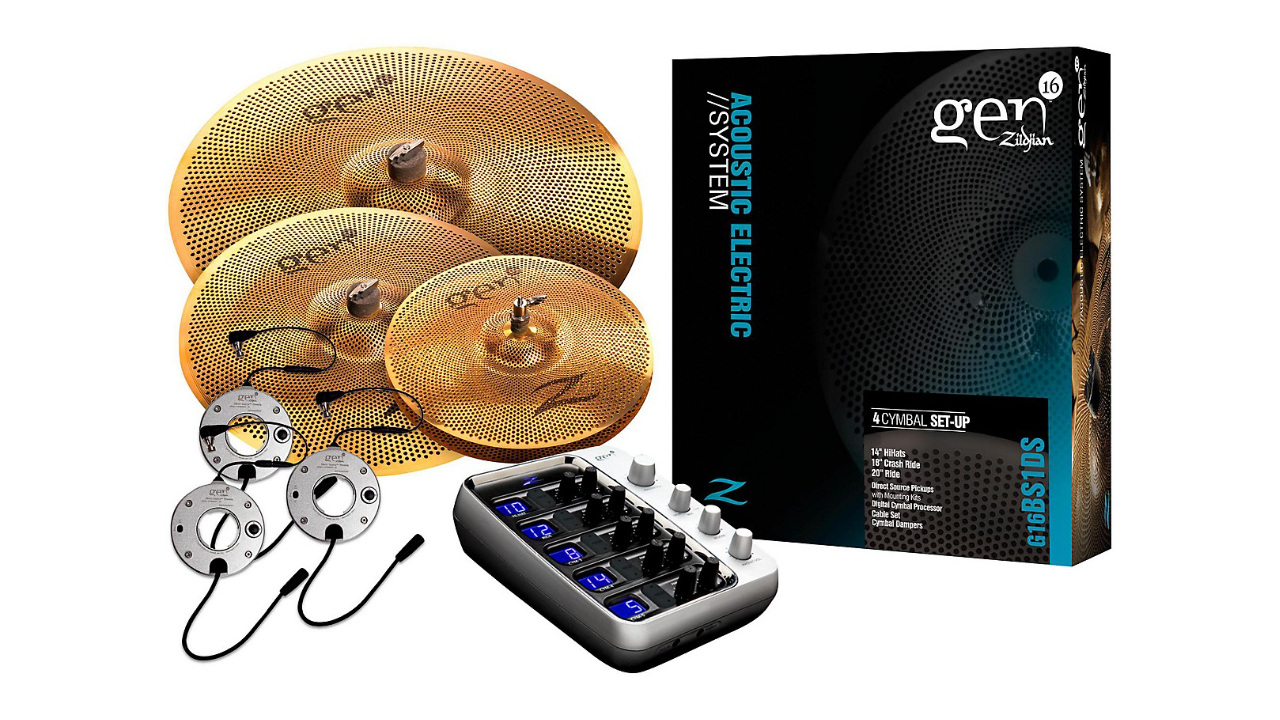
Specifications
Reasons to buy
Reasons to avoid
You’ll notice the Gen16’s share a large amount of their DNA with the Zildjian L80s, but the Gen16 cymbals have a little trick up their sleeve. Designed to be used alongside the ‘Digital Cymbal Processor’, the Gen16s can be used to trigger acoustic cymbal sounds. They use a pickup to detect vibration and convert it into sound, for those occasions when a set of regular cymbals might just be a bit too much.
You can also use the Gen16s as regular low volume cymbals for quiet practice, without the electronics switched on. They are more versatile than the standard L80s, but cost a lot more too.
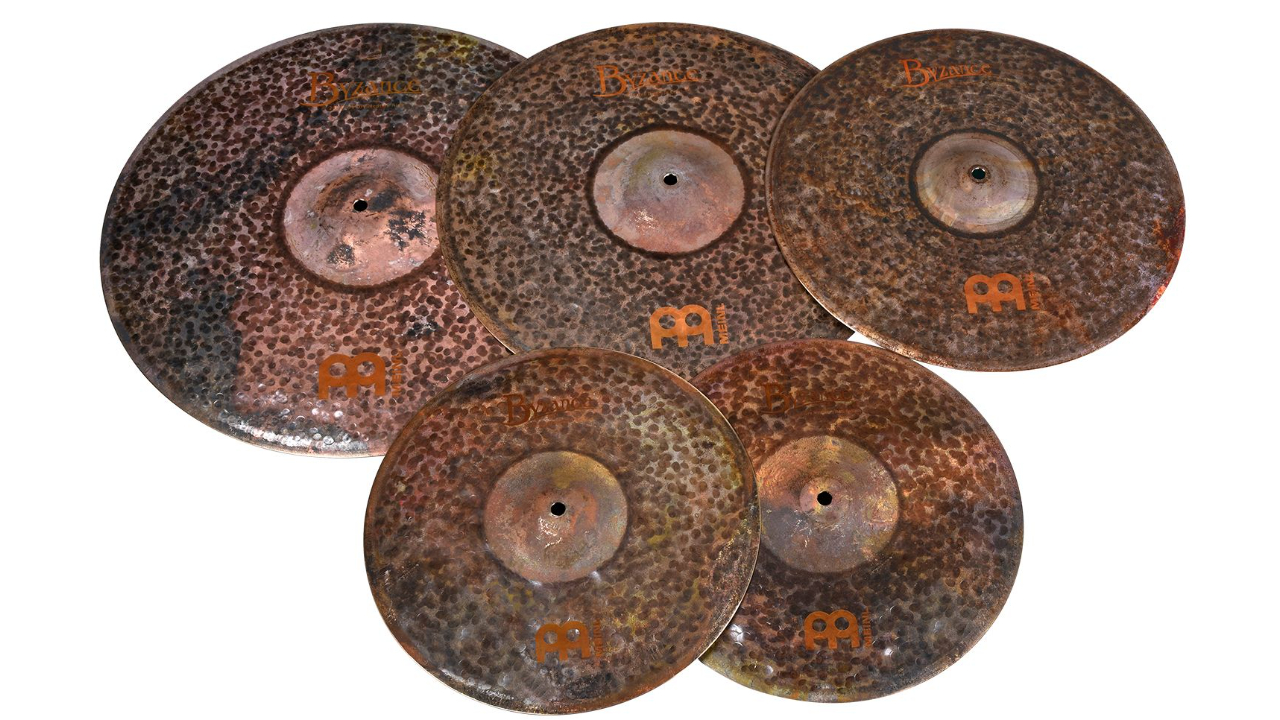
Specifications
Reasons to buy
Reasons to avoid
Meinl’s Byzance series is one of the largest and most versatile cymbal ranges around. They offer cymbals capable of anything from heavy metal to jazz and everything in between. The Extra Dry series definitely falls in the ‘in between’.
Largely intended for jazz and fusion players, the Extra Dry range is made up of thin, lightweight, dark sounding cymbals that have an unfinished playing surface. This means that the high-end frequencies are less abundant in these cymbals, and they don’t cut through quite as much - making them perfect for quieter playing. They are by no means ‘low volume’ though, so you might still upset your neighbours, but not as much as you did before.
Read the full Meinl Byzance Extra Dry review
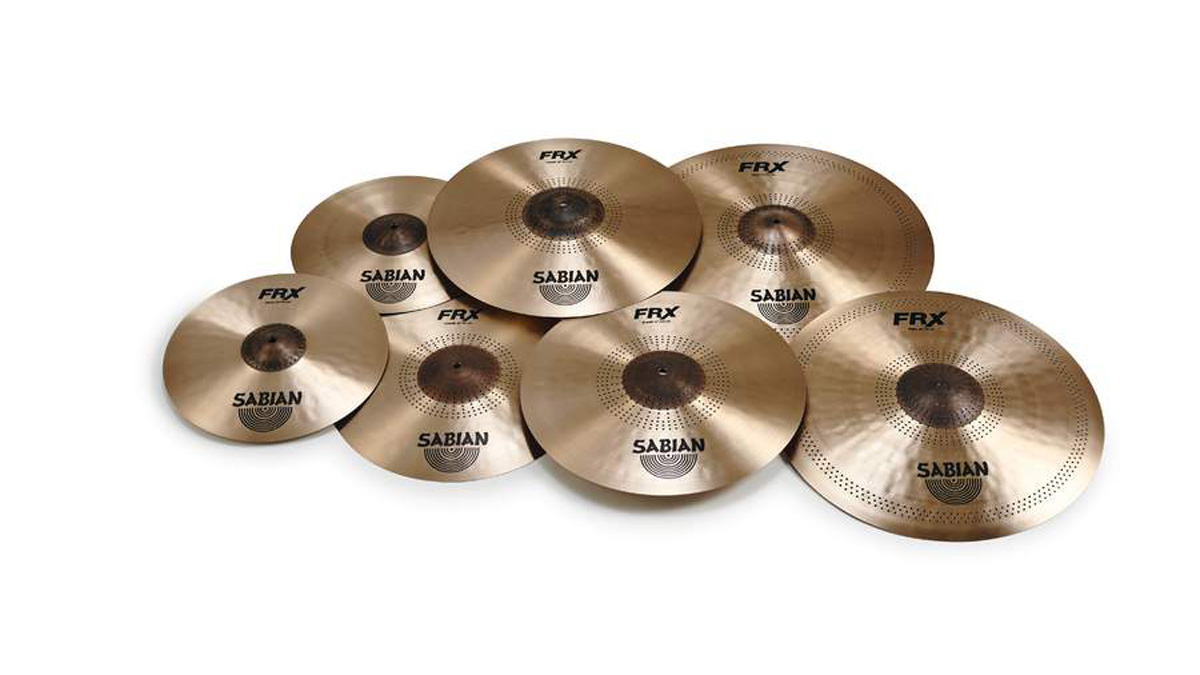
Specifications
Reasons to buy
Reasons to avoid
Sabian’s FRX series is a range of frequency-reduced cymbals that are ideal for those live situations where your current cymbals are just a bit too much.
Made from expressive B20 bronze, the FRX range is cut from the same cloth as some of the industry’s most impressive cymbals. They still deliver a wide tonal range, but the micro-perforations on each cymbal help to tune out those crazy overtones that can engulf your sound so easily. They aren’t exactly low-volume cymbals, but the lack of overtones does bring the perceived volume down to a more sensible level. Granted, they are a little pricey - but we’ll pay anything to stop the sound guy from asking us to play quieter.
Read the full Sabian FRX Cymbals review
- Sharpen your chops with the best drum practice pads
- Reduce your footprint with the best compact drum kits
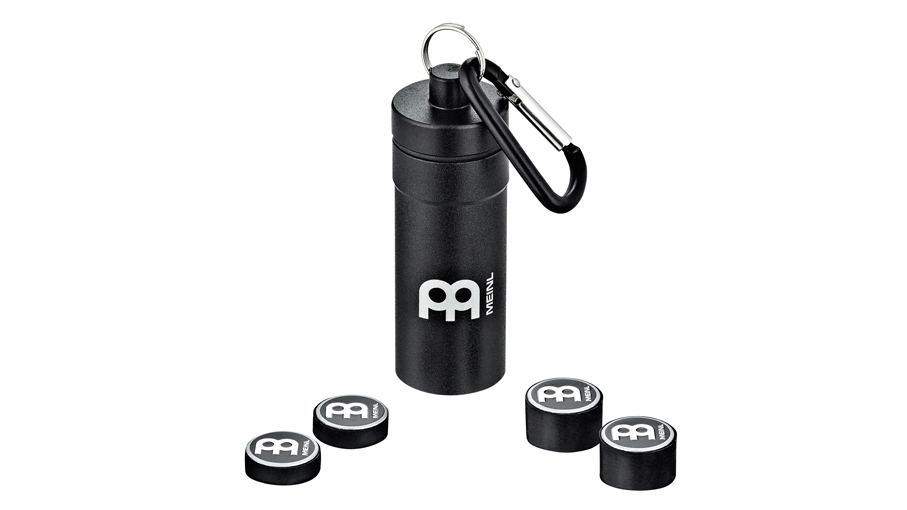
Specifications
Reasons to buy
Reasons to avoid
For what is essentially just a magnet with a Meinl logo on it, these are a pretty fantastic way of bringing your cymbal volume down. The Meinl Cymbal Tuners will hang on to your cymbals with steadfast resolve, and won’t cause any damage as you slide them across the surface.
The positioning of the Tuners makes a massive difference to the impact they make - but for killing volume and sustain, they should be positioned at the edge of the cymbal. The Tuners come in two different sizes, with the larger ones making the most difference. You might need to buy a few packs if you want to deaden your whole cymbal set, but that's still cheaper than buying new low volume cymbals.
Read the full Meinl Cymbal Tuners review
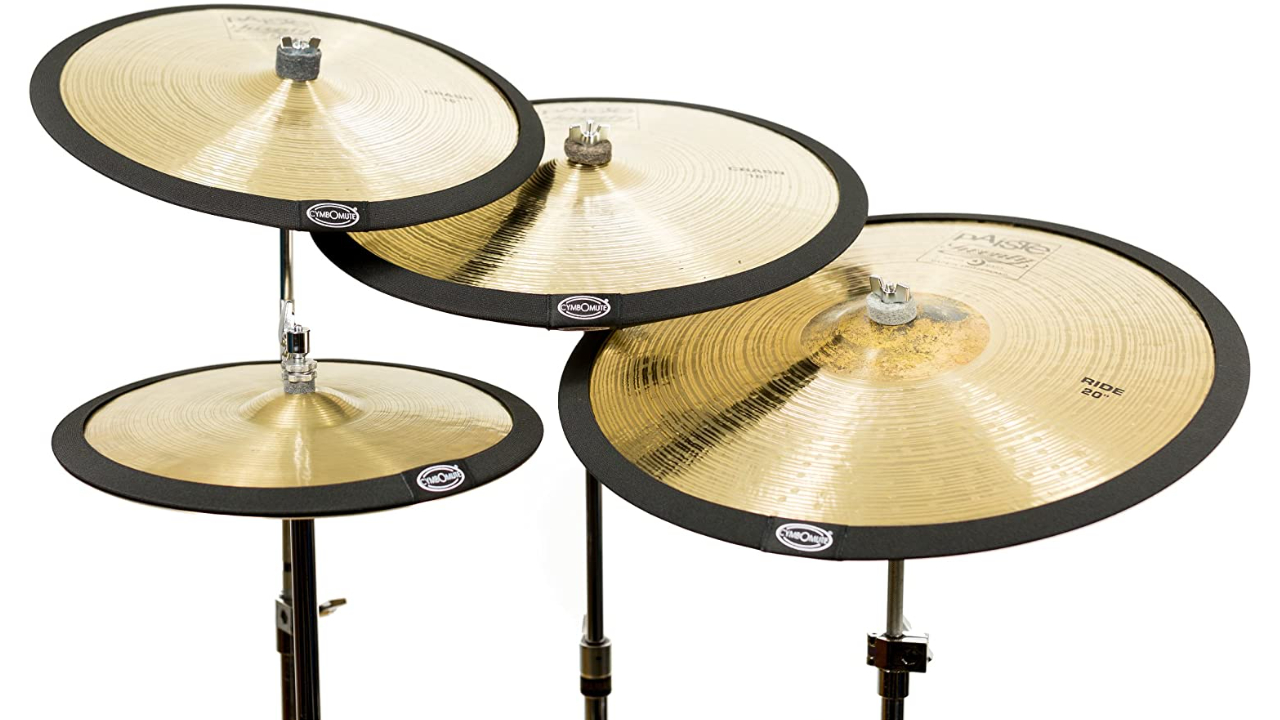
5. Cymbomute Cymbal Dampeners
Our expert review:
Specifications
Reasons to buy
Reasons to avoid
Cymbomutes are by far the cheapest way to effectively kill the volume of your cymbals. They’re a simple, easy-to-use option for those on a budget, and they won’t drastically interfere with the feel of your cymbals.
Cymbomutes are made from a hybrid of silicone and stretch fabric, and with their Silicone Bumper Technology, they’re built to withstand a fair bit of abuse from your sticks. That being said, Cymbomute recommends you tilt your cymbals towards you to avoid direct contact with the mute itself, and avoid using worn sticks as they may damage the fabric. If you prefer your cymbals flat, or every stick you have is chewed up, then you may need to think again.
Read the full Cymbomute Cymbal Dampeners review
- Find out more about how we test music gear and services at MusicRadar.
Get the MusicRadar Newsletter
Want all the hottest music and gear news, reviews, deals, features and more, direct to your inbox? Sign up here.
James is a freelance writer and former Junior Deals Writer at MusicRadar. Before writing, James worked as a guitar salesman at a local music store, so he knows a thing or two about matching people with their perfect instruments. James also has experience working in other areas of the music trade, having worked for the online music distributor, RouteNote. James is a guitarist, bassist and drummer and has also toured the UK and Europe with his old band Hypophora.
